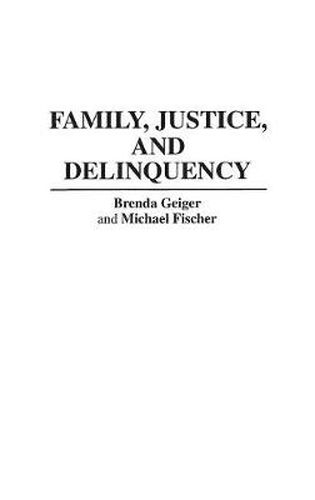Readings Newsletter
Become a Readings Member to make your shopping experience even easier.
Sign in or sign up for free!
You’re not far away from qualifying for FREE standard shipping within Australia
You’ve qualified for FREE standard shipping within Australia
The cart is loading…






Nuclear family and kibbutz childrearing practices are compared from a Rawlsian perspective of justice. Based upon the kibbutz educational system, which has reinstituted the family, Geiger and Fischer propose a model of educational change for consideration in the United States. This model is designed to strengthen the nuclear family while improving the prospects of disadvantaged, anomic, and unattached youth.
Geiger and Fischer examine, within a Rawlsian perspective, several child-rearing institutions affecting children. Justice as fairness would consider a child-rearing institution and its inequalities as fair if there are no alternative arrangements under which the prospects of least-advantaged children could be improved. Among these least-advantaged children are those who are neglected, abused, and stripped of self-respect. As the nuclear family disintegrates, the authors ask whether it can fulfill its child-rearing function. Utilizing a self-report study conducted on socialization and delinquency in Israel as well as several other observational studies, the authors demonstrate that in a more egalitarian structure such as the kibbutz, least-advantaged children have more opportunities to develop into autonomous responsible individuals. For Americans, the kibbutz educational system shows new paths for change from nursery school through high school that would allow for greater bonds between the family, school, work, and the community. An emerging sense of community would also stimulate the moral and intellectual growth of disadvantaged youth. This book is recommended to researchers and policy makers in the areas of education, delinquency, and social welfare.
$9.00 standard shipping within Australia
FREE standard shipping within Australia for orders over $100.00
Express & International shipping calculated at checkout
Nuclear family and kibbutz childrearing practices are compared from a Rawlsian perspective of justice. Based upon the kibbutz educational system, which has reinstituted the family, Geiger and Fischer propose a model of educational change for consideration in the United States. This model is designed to strengthen the nuclear family while improving the prospects of disadvantaged, anomic, and unattached youth.
Geiger and Fischer examine, within a Rawlsian perspective, several child-rearing institutions affecting children. Justice as fairness would consider a child-rearing institution and its inequalities as fair if there are no alternative arrangements under which the prospects of least-advantaged children could be improved. Among these least-advantaged children are those who are neglected, abused, and stripped of self-respect. As the nuclear family disintegrates, the authors ask whether it can fulfill its child-rearing function. Utilizing a self-report study conducted on socialization and delinquency in Israel as well as several other observational studies, the authors demonstrate that in a more egalitarian structure such as the kibbutz, least-advantaged children have more opportunities to develop into autonomous responsible individuals. For Americans, the kibbutz educational system shows new paths for change from nursery school through high school that would allow for greater bonds between the family, school, work, and the community. An emerging sense of community would also stimulate the moral and intellectual growth of disadvantaged youth. This book is recommended to researchers and policy makers in the areas of education, delinquency, and social welfare.